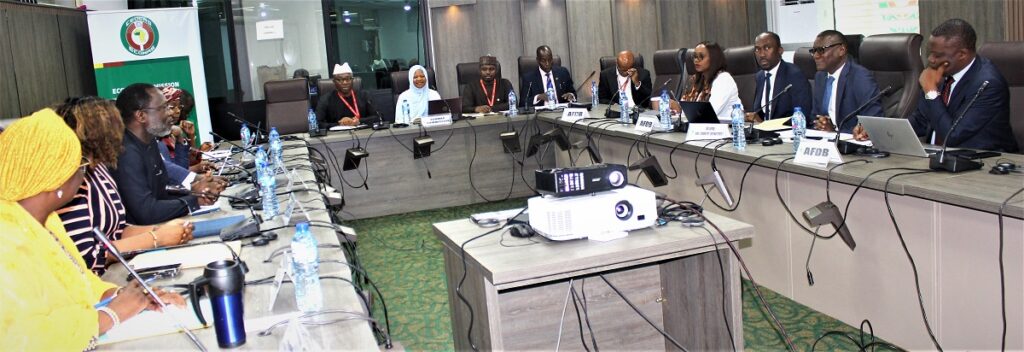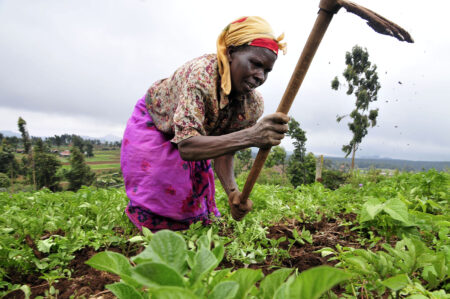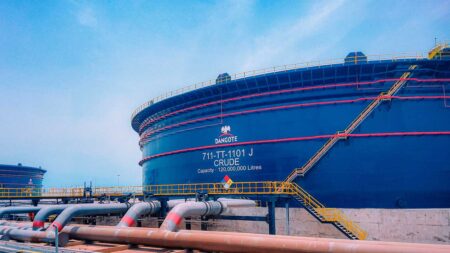- ECOWAS, AfDB Group hold consultations on West Africa Regional Integration Strategy Paper (RISP) 2020-2025.
- Consultations focused on current issues around West African integration, including challenges, opportunities, and prospects.
- Other pertinent issues such as economic affairs, human development, infrastructure, and politics were also discussed.
The Economic Community of West African States (ECOWAS) and the African Development Bank Group have successfully concluded discussions regarding the mid-term evaluation of the West Africa Regional Integration Strategy Paper (RISP) for 2020-2025.
This strategic plan, approved by the Bank Group in May 2020, was designed to bolster regional integration efforts in West Africa.
With an initial investment plan totaling $4.52 billion, the West African RISP primarily focuses on enhancing resilient infrastructure and fostering the growth of regional businesses.
The meetings, spanning from September 5th to 15th, 2023, were held at the ECOWAS Commission headquarters in Abuja, Nigeria.
West African integration
During this period, both parties assessed the mid-term outcomes and conducted a performance review of the Bank’s regional portfolio.
The evaluation centered on pertinent issues related to West African integration, including challenges, opportunities, and prospects. It also scrutinized the Bank’s strategic direction, priority intervention areas, common projects shared by the two institutions, and the state of their collaboration.
Further, it examined the collaborative efforts between the Bank and ECOWAS, fostering consensus on future outlook, direction, and areas of intervention within the framework of the Bank’s upcoming priority projects.
The discussions also encompassed a range of essential topics, spanning economic affairs, agriculture, human development, social affairs, infrastructure, energy, digitalization, political matters, peace and security, transportation, and information and communication technologies.
Mr Lamin G. Barrow, Director General of the Nigeria Country Department, led the Bank delegation and highlighted the growing partnership between ECOWAS Commission, the Bank, and regional institutions during the midterm assessment.
He emphasized the need to take stock and propose corrective measures to address various challenges and shocks faced in the previous three years.
Building resilience in Africa
ECOWAS Commission President Mr. Omar Alieu Touray stressed the importance of cooperation with the AfDB, particularly in the context of implementing the RISP, as it is central to their mandate.
He advocated consolidating achievements and repositioning activities and institutions for tangible results, recognizing the significant challenges ahead.
During the mission, the Bank Group delegation discussed the Bank Group’s Strategy for Addressing Fragility and Building Resilience in Africa (2022-2026). It also introduced the concept of “Security-indexed Investment Bonds” to the meeting.
The portfolio evaluation included a review of the studies for the Abidjan-Lagos highway project, paving the way for its construction in early 2024. This 1028-kilometer highway will connect Côte d’Ivoire, Ghana, Togo, Benin, and Nigeria.
Under its Regional Integration Strategy Paper, the Bank has mobilized $884.14 million since 2020, covering 70 new operations, nearly double the initially planned 38 projects.
These projects encompass various initiatives, including the Rosso Bridge between Senegal and Mauritania, the Trans-Gambia Corridor, the Niger-Algeria Trans-African Highway Project, and more.
Lessons learned and recommendations
During the talks, the implementation status of these projects, lessons learned, and recommendations were presented. Topics included innovative co-financing methods, resource mobilization, addressing fragility, enhancing project implementation units, and more.
In her closing remarks, Ms. Marie-Laure Akin-Olugbadé, the Bank’s Vice-President responsible for Regional Development, Integration, and Service Delivery, reaffirmed the Bank Group’s commitment to supporting Member States and the ECOWAS Commission in achieving the “Integrate Africa” priority of the High-5 agenda.
She highlighted the need for interventions targeting vulnerable populations, such as youth and women. What’s more, she called for the promotion of institutional governance, public resilience, and addressing regional instability causes and effects.
The Bank delegation also included Mr. Joseph M. Ribeiro, Acting Director General of West Africa; Mr. Jean-Guy Afrika, Acting Director of the Regional Integration Coordination Office; Mr. Yero-Baldeh, Director of the Transition States Coordination Office; and Mr. Bruno Boedts, Implementation Support Manager for regional operations.











